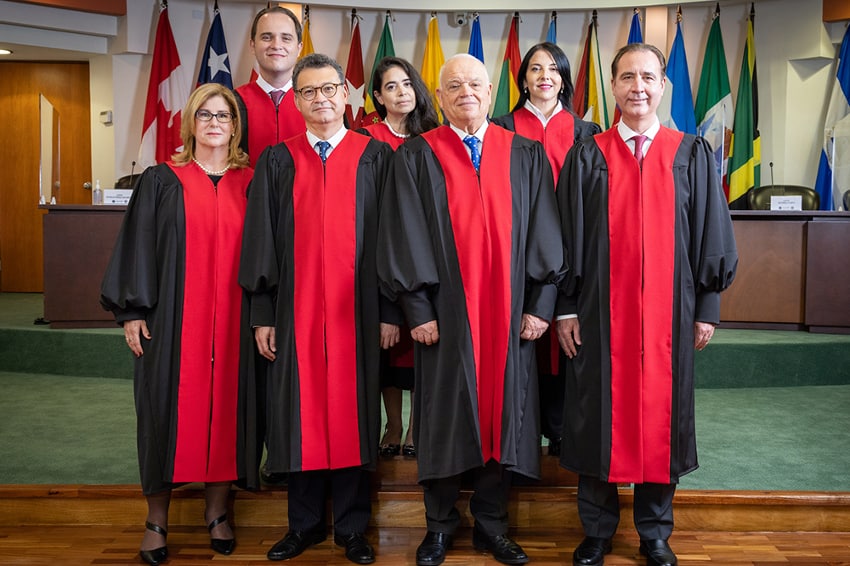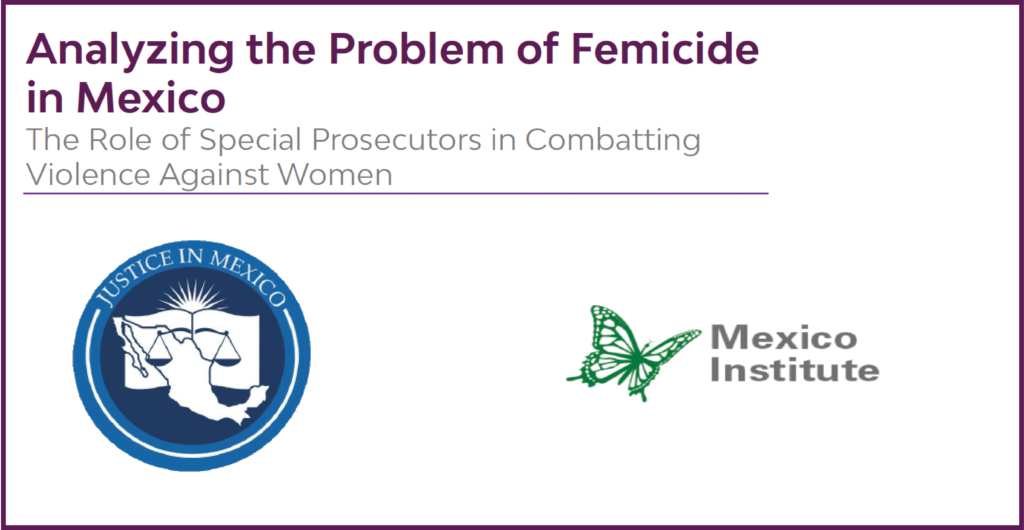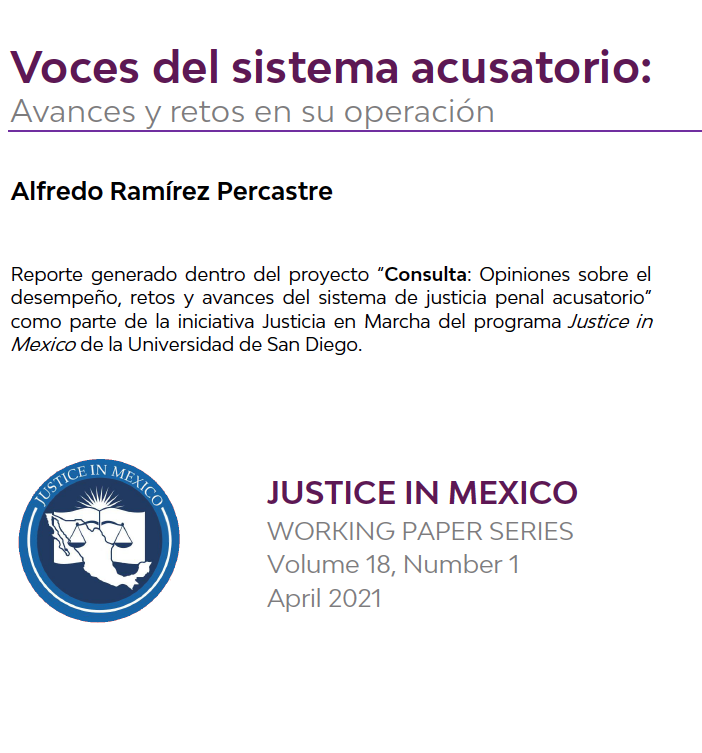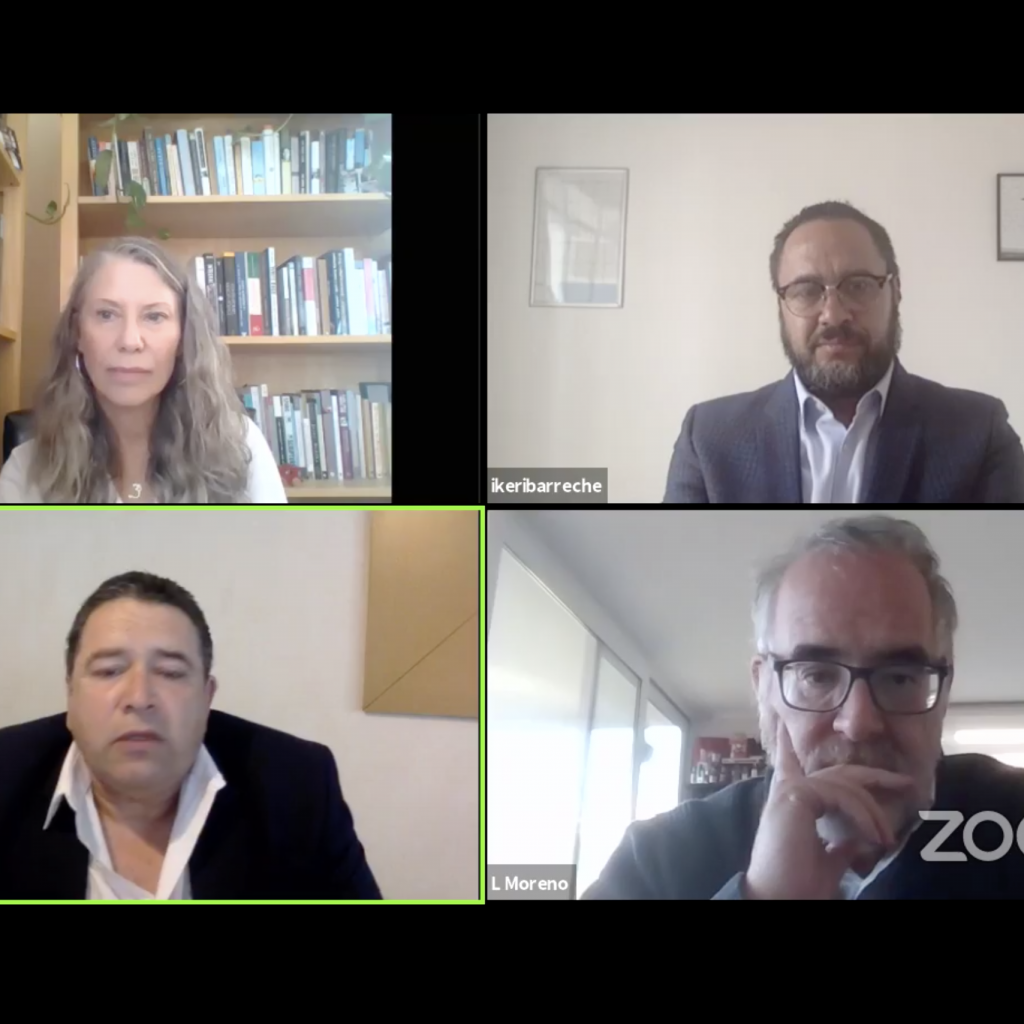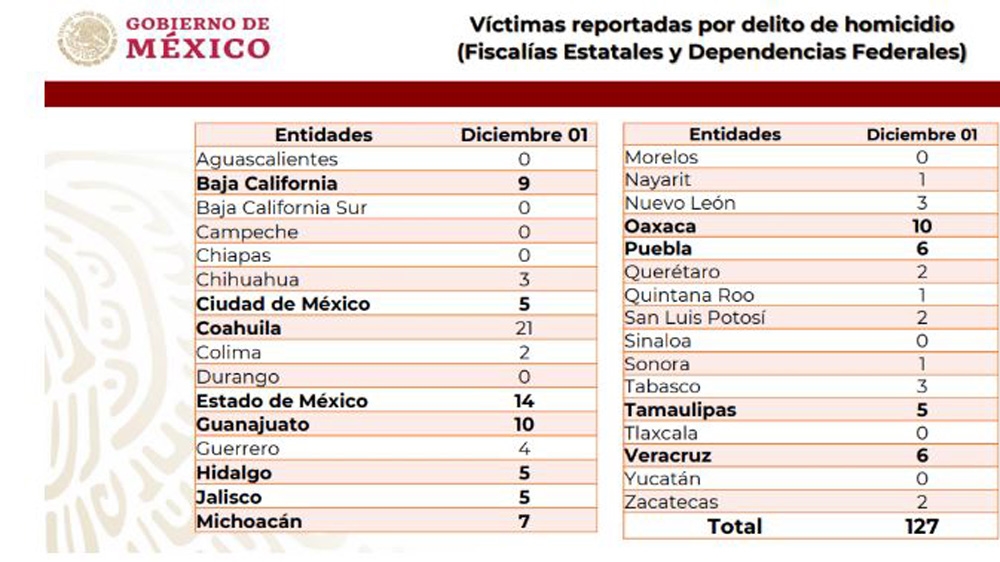
01/12/20 (written by kheinle) – Mexico’s New Criminal Justice System (Nuevo Sistema de Justicia Penal, NSJP) continues to garner mixed reactions from the public, government officials, judicial system operators, academics, and beyond, almost four years after it was implemented. In 2019, support and critiques were leveled throughout the year, some coming from higher-profile figures, as discussed below.
Background on the NSJP
Former President Enrique Peña Nieto (2012-2018) rang in the system’s official launch on June 18, 2016, in Mexico City. This ended the judicial system’s eight-year implementation period stretching from 2008 to 2016 that was inaugurated by former President Felipe Calderón (2006-2012). Read more about the NSJP in Justice in Mexico’s special report, “Criminal Procedure Reform in Mexico, 2008-2016.”
The life of the NSJP has spanned multiple presidents’ sexenios. It has been more than 11 years since the launch of its implementation in 2008, and three and a half years since the end of the implementation period in 2016. Unprecedented amounts of resources (financial, capacity building, academic, infrastructure, etc.) have been poured into the NSJP’s development and significant progress has been made. States continue to implement and fine tune the NSJP despite the setbacks and challenges each face in doing so. As Mexico faces its deadliest year on record, and most recently its deadliest day of 2019, it is critical that the federal, state, and local governments continue to strengthen its adversarial criminal justice system.
Critics of the NSJP
Alejandro Martí

Human rights activist Alejandro Martí, head of the organization México SOS, has been a critic of the overhauled justice system, arguing that it plays a role in perpetuating impunity in Mexico. “The fundamental problem of the [NSJP] is the corruption,” he said in June 2019. “And corruption produces this terrible impunity, which I have said for years. Impunity is a result of all the wrongs of Mexico.” A recent study by México Evalúa found that more than 90% of crimes committed in 31 of Mexico’s 32 states and federal entities were left unresolved. In seven states, impunity rates top 99%.
Martí also called out elected officials – particularly governors – and the police for the pervasiveness of corruption within their systems. He reminded the media with which he spoke that “half of the group of kidnappers who killed my son were police,” referencing his son’s murder in 2008 that led him to become an activist. Martí leveled his criticisms during a press conference that was promoting Mexico’s 8th National Forum on Security and Justice (“8° Foro Nacional de Seguridad y Justicia”) held June 7-8.
Elected Officials
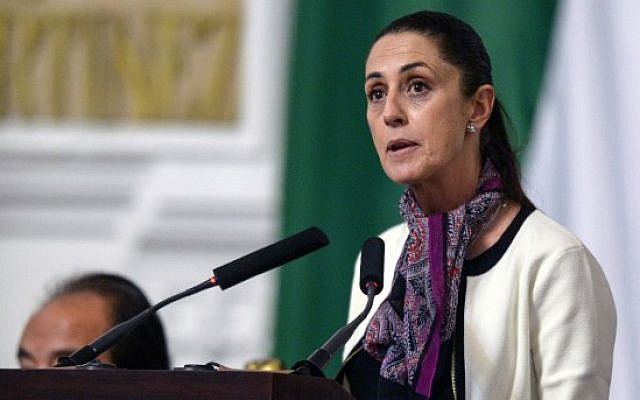
Former Mayor of Mexico City (Ciudad de México, CDMX) Miguel Ángel Mancera also voiced his concern that the New Criminal Justice System is responsible for higher levels of insecurity in the nation’s capital. In an interview with Ciro Gómez Leyva in June 2019, Mancera argued that the NSJP led to the early release of nearly 15,000 formerly incarcerated individuals to the streets of Mexico City in 2014 as part of the legal reforms. The NSJP is therefore, he reasoned, partially to blame for the kidnappings and assaults that now occur.
Mancera did acknowledge that Mexico City has long dealt with challenges related to drug trafficking and criminal activity, but that they were being addressed. Mancera’s comments came in response to criticism from current Mexico City Mayor Claudia Sheinbaum, who said the actions of former government administrations are responsible for today’s crime.
Support for the NSJP
Supreme Court Justice Arturo Zaldívar
A strong supporter of the New Criminal Justice System, however, is the president of Mexico’s Supreme Court (Suprema Corte de Justicia de la Nación, SCJN). Justice Arturo Zaldívar, who joined the bench in 2009, came to the justice system’s defense.

“With the unfortunate situation our country encounters with high levels of insecurity and impunity, there is no shortage of voices that claim the new [justice] system is responsible for these ills,” said Justice Zaldívar. “What is certain is that the new criminal justice system is neither the cause nor the effect of that problems that we face. More likely, it is the probable solution to them.” He continued, emphasizing that a strong and effective criminal justice system is critical to achieving peace and justice. “If we want a better country, if we want a country in which laws are respected, if we want a country where we live in harmony with peace and justice,” he said, “we should advance on the path on which we’ve come, we should perfect the accusatorial criminal system, [and] we should respect and value the richness of due process, the presumption of innocence, and the right to defense.”
His comments came as part of the bilateral conference, “Diálogos sobre el Sistema de Justicia Penal con el Reino Unido,” held August 12-15, 2019, in Mexico City. It is an annual meeting between the United Kingdom and Mexico that started in 2015. Each year, justices from both countries gather to exchange experiences and best practices, host mock courtroom hearings, and learn from one another, writes Excélsior. Despite operating different styles of criminal justice systems, the conference offers an opportunity for judges, public defenders, prosecutors, and law students to convene. This year’s topic focused specifically on oral trials, a pillar of Mexico’s New Criminal Justice System.
Roberto Hernández
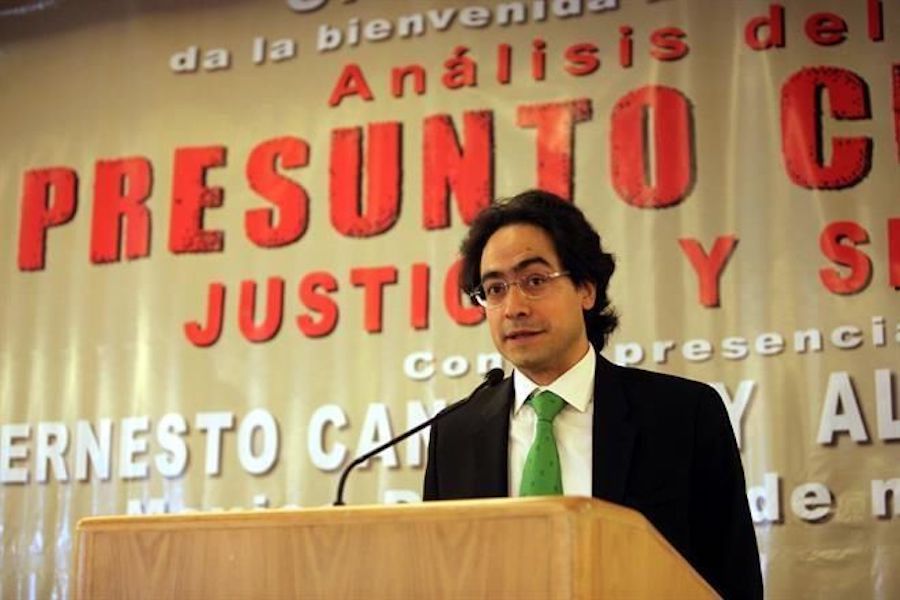
The co-director and co-producer of the popular documentary, “Presunto Cupable,” Roberto Hernández, also voiced his support for the NSJP. As reported by El Heraldo de Tabasco, Hernández commented in December that the adversarial system has made positive changes over the years, which were reinforced by the new system in place.
He drew his comments from a recent survey he helped conduct of more than 58,000 people. It was done in collaboration with the World Justice Project and Mexico’s National Institute of Statistics and Geography (Instituto Nacional de Estadística y Geografía, INEGI). The results showed that people thought the quality of justice in Mexico had advanced, in part due to the implementation of oral trials. Additionally, the quality of evidence collection and sentencing also improved. Still, Hernández acknowledged the additional work that needs to be done to bring the NSJP to its full capacity. In particular, he pointed to voids in police reform and police training that need to be addressed, as well as a raise in police salaries to help root out corruption.
These are but a few of the many examples of mixed support leveled towards Mexico’s New Criminal Justice System and its role in crime, violence, justice, and accountability nationwide. Justice in Mexico has explored both these topics throughout the years, which can be read about here.
Sources:
Rodriguez, Octavio and David A. Shirk. “Criminal Procedure Reform in Mexico, 2008-2016.” Justice in Mexico. October 2015.
Cortes, Nancy G. et al. “Perspectives on Mexico’s Criminal Justice System: What Do Its Operators Think?” Justice in Mexico. April 2017.
Zaldívar, Arturo. “Cambio cultural y nuevo sistema de justicia penal.” Milenio. November 14, 2017.
Dávila, Patricia. “Corrupción en Nuevo Sistema de Justicia produce esta terrible impunidad’: Martí.” Proceso. June 2, 2019.
“Atribuye Mancera inseguridad a Nuevo Sistema de Justicia Penal.” Excélsior. June 12, 2019.
Angel, Arturo. “Más del 90% de los delitos denunciados en el país no se resuelven, muchos los ‘congela’ el MP.” Animal Político. August 7, 2019.
“Violencia que vive el país no es responsabilidad del sistema penal: SCJN.” Noticieros Televisa. August 12, 2019.
“Defiende Zaldívar nuevo sistema penal.” Reforma. August 13, 2019.
Robertson, Corin. “México y el Reino Unidos: tres años de compartir experiencias en la impartición de justicia.” Excélsior. August 19, 2019.
“Tercera Edición, 2019.” Suprema Corte de Justicia de la Nación. Last accessed August 30, 2019.
Secretaría de Seguridad Pública. “Víctimas reportadas por delito de homicidio.” Gobierno de México. December 1, 2019.
“Mexico homicide record: 127 deaths reported in a single day.” Al Jazeera. December 3, 2019.
Guadalupe Pérez, José. “Avanza sistema de justicia en México.” El Heraldo de Tabasco. December 16, 2019.
Román Gallegos, Juan. “Necesario capacitar a policías y Ministerios Públicos en cuanto a corrupción.” Diario Presente. December 17, 2019.
“Around the States: Updates on the New Criminal Justice System.” Justice in Mexico. December 29, 2019.

